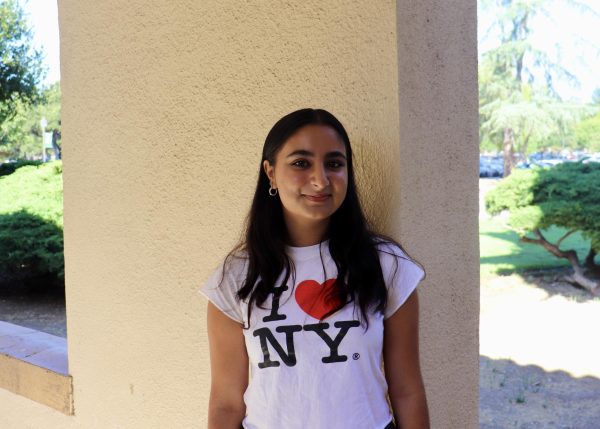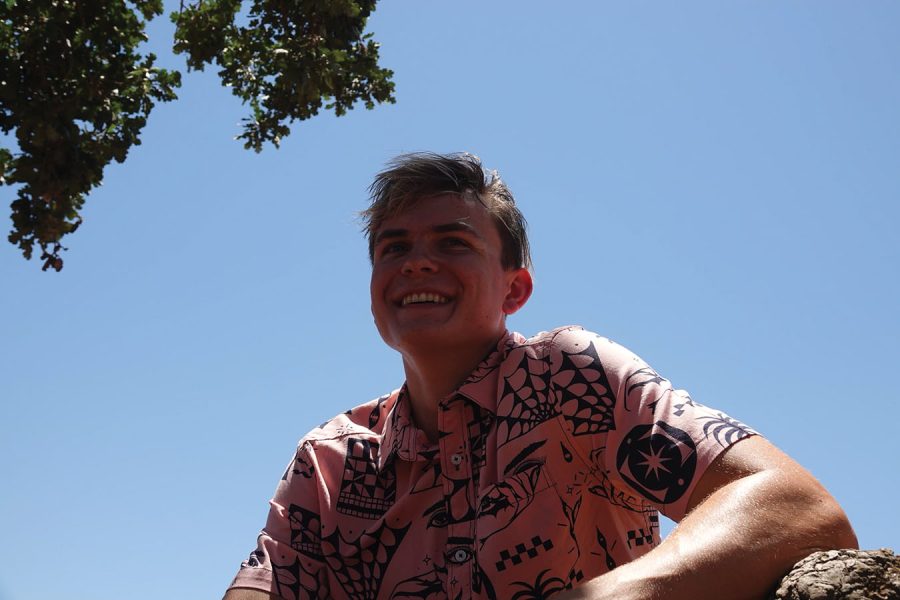Different People, Different Paths
The impacts of seeking different pathways of higher education and the pressure of attending a four-year university
In the Paly community, unattainable expectations often pressure students to go to rigorous four-year universities. However, various atypical post-high school pathways are commonly overlooked and lead to the same success.
For 2017 Paly alumni Ibby Day, the decision to go to art school was uncommon compared to students around her. Regardless, she resisted pressures and went on to get her Bachelor of Fine Arts in illustration design from the ArtCenter of Design in Pasadena, California.
“I think [going to art school] is seen as a divergence from what most people do because Paly has a culture that’s really intense on academics [and] sports,” Day said.
Day attended the California State Summer School of the Arts (CSSSA), where she considered the possibility of an art career. Furthermore, CSSSA amplified Day’s faithfulness to the arts and is what ultimately drove her to pursue art school.
“Isolated time with your craft forces you to be creative for an extended period of time and that’s what’s hard about being creative, is having to stay motivated for such a prolonged amount of time,” Day said. “It taught me [the] skills to be able to do that.”
Fellow 2017 Paly graduate, Dillon Scheel was the first in his family to approach college in a unique way by following his interest rather than the expectations around him. As he entered his musical career, many opportunities were unlocked for him.
“I had always been writing songs in high school, but I started getting into producing my senior year,” Scheel said. “I was recording, producing, and playing electronic music.”
Scheel enrolled at the University of Michigan prior to his decision to take a gap year that allowed him to realize that he belonged at the Berklee School of Music.
“When I got to [music] school, I was able to work on things with other people [in the music industry and ask] for help, and it started accelerating how much I could learn in a short amount of time,” Scheel said.
In contrast to Scheel, Paly senior Rebecca Helft knew going into the college application process that theater school was the quintessential path for her.
“Since I was a baby, I’ve known I wanted to perform,” Helft said. “When I get on stage, I’m so happy, and acting is where my interest actually combines my joy and my talents.”
However, through the application process, Helft was concerned about steering away from typical college pathways to pursue her love for theater.
“It’s really stressful to put myself in a vulnerable place, emotionally, because there’s a lot of rejection,” Helft said.
Like Helft, Paly senior Elizabeth Fetter combatted Paly’s expectations by deciding to attend the United States Military Academy, commonly known as West Point. However, Fetter was unsure about her commitment to Westpoint due to the limited number of individuals who attend military school from Paly. Many students are pressured into a traditional four-year university, rather than military school.
“Although West Point is similar [to traditional colleges,] as it still gives you a four-year education, you’re also committing to five years of service after,” Fetter said. “It’s a very different path, and I wasn’t sure if that was something I wanted to commit to.”
Many people believe uncommon pathways lead to an unsuccessful life, however, the notion of success is constantly changing, and many people have been able to accomplish their greatest ambitions regardless of their postgraduation pathway.
Nevertheless, in Silicon Valley, there is a stigma associated with alternative post-high school careers, such as community college and schools that surround art, music, military and musical theater.
“Silicon Valley has a large emphasis on success and getting a degree, which is really valuable to some people, but to other people, it’s not,” Fetter said.
At Paly specifically, the coursework can lead students to the conclusion that pursuing a socially traditional career is the only path to take.
“The weird thing about Paly is that the teachers are great and always very encouraging of what you want to do,” Day said. “But this isn’t reflected in the way that students feel day to day because the sheer amount of homework creates this illusion that that’s the career path you have to go on.”
There is never one right path, but many people gravitate towards a four-year college due to the pressure at Paly which clouds their independent decision.
“In this area, it’s pushed a lot, that everyone should go to a four-year university straight out of high school,” Fetter said. “I don’t think that’s the path for everyone.”
Paly college and career counselor Sandra Cernobori recognizes the stigma associated with unconventional career paths in numerous academic institutions and notices a deep focus on creating an image of success.
“There tends to be a focus among people on prestige, and what makes a school good is supposed to be relative to [the] student, through academic goals, social needs, and financial purpose,” Cernobori said.
In the same way Cernobori highlights the issues regarding status and stigma surrounding individuals’ postgraduation paths, Helft successfully avoided this focus and is confident in her decision to attend theater school.
“I do feel an underlying sense of disrespect for pursuing a career in the arts and this ties into the elitism that Paly has,” Helft said. “This has less to do with people’s opinions on the arts in Palo Alto, and more the general culture we have around college hierarchy and college elitism.”
When looking at paths that steer away from a traditional four-year college, many students look towards applying to a specialty school to strengthen their skills and ultimately set themselves up for success in their future careers.
“The advantage [of music school] is feeling validated and also feeling like I’m not alone because I had people who were doing what I was doing at school,” Scheel said.
Alternative college pathways can be overlooked and less emphasized which limits a student’s options when seeking higher education. The academically intense curriculum and culture at Paly leave students experiencing burnout and only teaches them how to succeed in one type of environment. This results in students feeling as if pursuing alternative pathways isn’t an option.
“Some students want a break, as it can be hard here, especially if you’re taking hard classes or involved in lots of extracurriculars,” Cernobori said. “It can just be a lot.”
After four years of working hard in high school, especially at a rigorous school like Paly, moving on to college the following year may be too quick and many students may not feel prepared or know what they want to do. There are still plenty of post-high school choices to accommodate this feeling.
Serena Habash graduated high school in 2019 and is now a City College of San Francisco and Full Sail University Alumni.
“I decided to go to community college after high school because I wasn’t too sure what I wanted to major in or what I wanted to do with my life,” Habash said.
Throughout her experience, Habash realized that listening to herself was the only way she could be content with her decision. She values patience and being able to recognize that choosing the right path is important.
Each student is unique and the social expectation of going to a four-year university might not be the right fit for everyone.
“I wish that people would realize this is a really personal choice and there shouldn’t be a lot of judgment associated with what someone prefers more than others,” Cernobori said.
At Paly, the interest in pursuing a different pathway rather than immediately attending a four-year university can be met with skepticism and isn’t seen as an option. Most students don’t know they have other possibilities when striving to pursue their passions in a significant way.
“Don’t think that four-year universities are always going to be the right path,” Fetter said. “There are community colleges, jobs and working, as well as military enlistment and other service academies, which are very valuable options as well.”
Students who are persistent in their passions, regardless of opposition, will be able to reach their goals and have meaningful careers.
“Take it one day at a time and remember, it’s not about what the goal is, but about the journey of getting to your goal,” Habash said.
Validating each student’s college pathway – whether it’s a four-year university or not – ultimately removes some of the stigma associated with alternative postgraduate pathways.
“For people that have that drive and want to be working on their art,” Scheel said. “I think [focusing on it in] school is the only way to go.”
Postgraduation expectations make it nearly impossible for students to achieve their goals and make students lose their motivation to fulfill their dreams. Additionally, it is extremely difficult for students to feel confident in their decision-making when they are constantly forced into one career path. Unconventional postgraduation pathways are immensely stigmatized, when they offer up the same level of education, just in a different way.
“There’s no point [in] worrying about the choices we’re gonna make because they’re all going to teach us something about ourselves,” Day said. “The important thing to remember is to make choices that are right for you.”
Print Issue
Please click on the three vertical dots on the top right-hand corner, then select “Two page view.”

2022-2023 Staff Writer
2023-2024 Business Manager
I joined C Mag because I love digital design and writing about arts + culture! My favorite parts...












